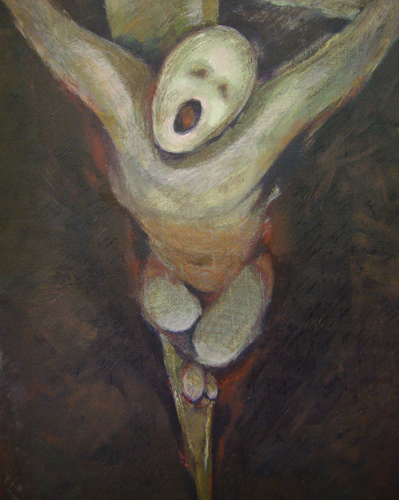Welcome to 2012! Please join the Theology Workshop as we embark on our Winter quarter theme: “Reckoning with Scriptures”, at 12:00 pm, Monday, January 9th — Swift 200.
 Our first presentation is that of Evan Kuehn, 2nd year PhD student in Theology. Evan will offer a constructive proposal inspired by Schleiermacher’s Glaubenslehre that incorporates his account of the threefold office of Christ into a new reading of the cry of dereliction. It will propose an interpretation that revises Schleiermacher’s explicit conclusions about the event of Christ’s abandonment by God while hewing closely to the structure, content, and purpose of Schleiermacher’s doctrine of the person and work of the Redeemer. Instead of following Schleiermacher by interpreting the godforsakenness of Jesus as problematic for His unique and persistent dignity as Redeemer, Christ’s godforsakenness will be explained as the end of the prophetic office of Christ.
Our first presentation is that of Evan Kuehn, 2nd year PhD student in Theology. Evan will offer a constructive proposal inspired by Schleiermacher’s Glaubenslehre that incorporates his account of the threefold office of Christ into a new reading of the cry of dereliction. It will propose an interpretation that revises Schleiermacher’s explicit conclusions about the event of Christ’s abandonment by God while hewing closely to the structure, content, and purpose of Schleiermacher’s doctrine of the person and work of the Redeemer. Instead of following Schleiermacher by interpreting the godforsakenness of Jesus as problematic for His unique and persistent dignity as Redeemer, Christ’s godforsakenness will be explained as the end of the prophetic office of Christ.
Kyle Rader, 4th year PhD student in Theology, will respond.
The paper will be available through the Theology Workshop listserve, but no preparation is expected of attendees of the workshop. Like last quarter, presentations will range 25-30 minutes, with a 5-10 minute response and roughly 45 minutes for discussion. A light lunch will be provided.
—
Reckoning with Scriptures, Winter 2012
Theologians and their analogues across a huge array of religious traditions consider certain texts to be uniquely authoritative, and themselves to be somehow accountable to them. The extent and manner of their response to sacred texts, however, are highly variable even within single communities. Furthermore, the study of theology and the study of scripture have come to occupy largely separate spheres in most North American and European universities and seminaries. This arrangement has not been fruitless, but there is a growing discomfort with it in many quarters. For instance, the dominance of the historical-critical paradigm has been contested by liberationist, feminist, queer and other reading strategies, including many that would retrieve classical forms (e.g. Patristic or Talmudic) of exegesis as normative. This quarter’s presentations will explore the relation of theology to scripture, in ways that wrestle with the hermeneutical, political, epistemic, ethical, and ecclesiological problems indigenous to scriptural traditions.
